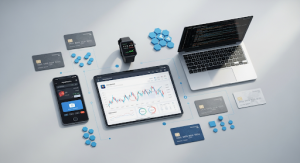The Advantages and Risks of Using Contracts for Difference in Trading
Trading in today’s financial markets has evolved significantly, and one of the most popular tools for traders is the Contract for Difference (CFD). A CFD is a financial derivative that allows traders to speculate on the price movements of various assets without actually owning the underlying asset. This flexibility has made CFDs a go-to choice for many traders, but like any financial instrument, they come with their own set of advantages and risks. Let’s dive into the world of CFDs and explore why they’re so appealing, and what potential pitfalls traders should be aware of.
The Allure of Leverage
One of the most attractive features of CFD trading is the leverage it offers. Leverage allows traders to control a larger position in the market with a smaller amount of capital. This means that even small market movements can lead to significant gains, which is why many are drawn to CFD trading. Imagine being able to trade a $10,000 stock position with just a $1,000 deposit; that’s the power of leverage. However, this same leverage can also amplify losses, so it’s crucial for traders to understand the risks involved.
Market Access and Diversification
Another advantage of trading CFDs is the wide range of markets and assets they provide access to. From stocks and indices to commodities and currencies, CFDs allow traders to diversify their portfolios across various sectors. This diversification can help spread risk and potentially increase returns. For instance, if a trader is bearish on a particular stock, they can use a CFD to short sell that stock, profiting from its decline without needing to own the shares.
The Role of CFD Trading Platforms
Platforms like Markets, a CFD trading platform, play a pivotal role in facilitating CFD trading. They offer user-friendly interfaces, a variety of tools, and educational resources that can help traders make informed decisions. These platforms also provide real-time data and analytics, which are essential for staying on top of market trends and making timely trades. The availability of such platforms has made CFD trading more accessible to a broader range of traders.
Understanding the Risks
While the benefits of CFD trading are clear, it’s important not to overlook the potential risks. The most significant risk is the potential for significant losses due to the leveraged nature of CFDs. If the market moves against a trader’s position, they could lose more than their initial investment. Additionally, there’s the risk of liquidity, as some CFDs (It is also known as “العقود مقابل الفروقات” in Arab.) may not be as easily tradable as other assets, leading to difficulties in entering or exiting positions.
Regulation and Transparency
Regulation is a critical aspect of the CFD trading landscape. Ensuring that a trading platform is regulated by a reputable financial authority can provide a layer of protection for traders. It also promotes transparency and fairness in the market. For example, Markets, being a regulated CFD platform, adheres to strict guidelines that protect investors and ensure the integrity of the trading environment.
The Human Element
Lastly, it’s worth noting the human element in CFD trading. Emotional decision-making can often lead to poor trading outcomes. Traders must manage their emotions and stick to a well-thought-out strategy to succeed in the long run. This is where the support and resources provided by CFD trading platforms like Markets can be invaluable. They offer educational materials and tools designed to help traders develop the skills and discipline needed to navigate the markets effectively.
In conclusion, CFD trading offers a flexible and potentially lucrative way to engage with financial markets. The leverage, market access, and diversification opportunities it provides are significant advantages. However, the risks are equally significant, and it’s crucial for traders to approach CFD trading with a clear understanding of both the opportunities and the challenges. With the right platform, like Markets, and a disciplined approach, CFD trading can be a rewarding experience. So, whether you’re a seasoned trader or just starting out, understanding the ins and outs of CFDs is a key step towards successful trading.






